As a BetterHelp affiliate, we receive compensation from BetterHelp if you purchase products or services through the links provided
Completion anxiety can be perplexing and unsettling as you feel uneasy at the thought of finishing tasks or projects. This form of anxiety often triggers a sense of discomfort at the prospect of reaching an endpoint, regardless of the task’s importance or nature. You might notice a pattern where the closer you get to completing a task, the more anxious and less motivated you feel. It could be a reaction to fear of the unknown after the task is done or worry about the outcome being less than perfect.
While it is not an officially recognized mental health diagnosis, the experience of completion anxiety is very real and can have a tangible impact on your productivity and well-being. Understanding why this happens is the first step toward addressing it. The causes may vary, including fear of failure, fear of success, or even the lack of knowledge of what to do next. Identifying these triggers can lead to strategies that help manage or alleviate this anxiety.
Sensing the end of an assignment might bring about a wave of procrastination or a flurry of self-doubt. In more severe cases, it could impact your overall mental health or intersect with other anxiety disorders. Working through these feelings often requires self-reflection, lifestyle adjustments, and, sometimes, professional guidance. By developing self-awareness around your triggers, you can implement coping strategies that work for you, leading to a healthier approach to task completion.
Key Takeaways
- Completion anxiety involves discomfort and unease when nearing the end of tasks.
- Identifying triggers is crucial to managing these feelings effectively.
- Addressing completion anxiety may include self-awareness practices, lifestyle changes, and seeking professional help.
 Understanding Completion Anxiety
Understanding Completion Anxiety
When looking at the mountain of tasks ahead, feeling both the weight of expectation and the fear of not finishing can be paralyzing. It’s this burden that dips into what we call completion anxiety.
Defining Completion Anxiety
Completion anxiety is a specific type of anxiety you experience when you’re concerned about not being able to complete a task or project. Here are some common traits:
- Perceived Inability: A belief that finishing the task is beyond your capability.
- Avoidance: Putting off tasks due to dread of the mental or emotional energy required.
Symptoms of Completion Anxiety
You might be facing completion anxiety if you notice the following symptoms:
- Physical Signs: Restlessness, increased heart rate, or headaches.
- Mental Stress: Frequent worry about tasks, feeling overwhelmed, or fear of the judgment that may come with unfinished work.
The root cause of these symptoms can often be traced back to a fear of failure or not meeting one’s own or others’ expectations, which can spiral into an anxiety disorder if not addressed. Remember, recognizing the symptoms is a substantial step toward getting a handle on completion anxiety.
Identifying the Causes
Understanding why you might struggle with completing tasks can be an eye-opener. It’s often a mix of internal pressures and fears that hold you back. Let’s break down these psychological barriers.
Fear of Failure and Success
Fear of Failure
- What it is: You’re worried you won’t be able to meet expectations.
- Why it matters: This can stop you from starting or finishing projects.
- Low Self-Esteem and Its Role: Doubts about your ability can feed this fear.
Key Takeaway: Recognizing the fear of failure is essential to overcoming it and improving self-confidence.
Fear of Success
- What it is: Ironically, you might be scared of the changes success brings.
- Why it matters: It can be as paralyzing as fear of failure.
Key Takeaway: Both fears can stem from how you view your potential and handle change.

 Perfectionism and Procrastination
Perfectionism and Procrastination
Perfectionism
- What it is: The pursuit of a flawless outcome.
- Why it Matters: Sets impossibly high standards, often leading to task avoidance.
- Link to Task Completion: Perfectionism can delay or derail finishing tasks.
Key Takeaway: Realize that perfection is a moving target, and aim for progress over perfection.
Procrastination
- What it is: Putting off tasks for later.
- Why it Matters: It creates a cycle of stress, guilt, and feeling overwhelmed.
Key Takeaway: Breaking the cycle of procrastination involves understanding its triggers and strategizing accordingly.
Effects and Consequences
Completion anxiety can notably influence your mental health and daily functioning. It often leads to a noticeable drop in productivity and overall well-being, with your mind and body bearing the brunt of continuous stress.
 Impact on Mental Health
Impact on Mental Health
Your mental health can take a hit when you’re struggling with completion anxiety. You may experience:
- Increased Stress: Constantly worrying about finishing tasks can spike your stress levels.
- Anxiety Disorders: Persistent anxiety might develop into more severe conditions like generalized anxiety disorder.
- Difficulty Concentrating: Focusing on tasks becomes more challenging with your mind scattered.
Key Takeaway: Protecting your mental health is crucial; recognizing these signs early can help you manage them better.
Effects on Productivity and Wellbeing
Completion anxiety affects not just your mind but also your ability to accomplish tasks and maintain a healthy lifestyle:
- Reduced Productivity: When you’re anxious, your work efficiency can suffer, making it hard to complete tasks effectively.
- Physical Symptoms: Long-term anxiety might manifest as headaches, fatigue, or stomach issues.
- Wellbeing: Feeling overwhelmed can diminish your sense of well-being and satisfaction.
Key Takeaway: Your productivity and well-being are intertwined, so tackle anxiety proactively to keep both in check.
Connections to Other Disorders
Completing tasks can be tricky, especially if you’re juggling mental health challenges. It’s important to understand how completion anxiety might intertwine with other disorders, as it can help you manage your symptoms more effectively.
Anxiety and Mood Disorders
Anxiety and mood disorders, such as bipolar disorder, often travel hand-in-hand with completion anxiety. Here’s a snapshot:
- Bipolar Disorder: Characterized by dramatic shifts in mood, energy, and activity levels. Periods of high energy (mania) could lead to starting many tasks, while low moods (depression) can result in difficulty finishing them.
- General Anxiety Disorders: Constant worry might prevent you from completing tasks due to fear of failure or overthinking the outcomes.
Key Takeaway: Check in with your moods; they’re signposts pointing to how they might affect your task management.
Attention and Impulsivity Issues
If you’re challenged by focusing or acting without thinking, it could relate to ADHD or completion anxiety. Here’s what this could look like:
- ADHD (Attention-Deficit/Hyperactivity Disorder): You might find starting tasks easy but get distracted along the way, making completion tough.
- Attention issues may lead to procrastination or abandoning tasks that no longer interest you.
Key Takeaway: Recognizing when your attention starts to wane can be an excellent indicator to take a break and refocus your efforts.
Evaluation and Diagnosis
When you’re feeling overwhelmed by unfinished tasks, knowing if anxiety plays a part is valuable. Proper evaluation and diagnosis are pivotal for understanding and managing your experiences.

Assessment by a Therapist
A therapist skilled in anxiety disorders conducts a thorough evaluation. They will explore your symptoms, frequency, and the context in which your anxiety arises. Expect them to ask about:
- Your history: What triggers your anxiety, and have you experienced similar feelings in the past?
- Your symptoms: Are you facing difficulty concentrating, sleeping, or persistent worry?
This dialogue helps to paint a clear picture of your experience. The therapist may use:
- Structured interviews
- Questionnaires
- Observational methods
Key Takeaway: Opening up about your struggles is the first step to getting tailored help.
Distinguishing from Other Conditions
It’s crucial to separate completion anxiety from other disorders as symptoms can overlap, such as:
- Procrastination related to Attention-Deficit/Hyperactivity Disorder (ADHD)
- Excessive worry characteristic of Generalized Anxiety Disorder (GAD)
- Avoidance behaviors seen in Obsessive-Compulsive Disorder (OCD)
Your therapist will consider the subtleties distinguishing completion anxiety, such as the anticipation of satisfaction upon task completion, which isn’t as pronounced in other conditions. They’ll look for patterns specific to your situation, like:
- Task initiation and the emotional response to pending tasks
- Your relationship with deadlines and time management
- Any avoidance tactics you might employ
Key Takeaway: Understanding what sets your anxiety apart is a decisive step toward effective management.
Strategies for Managing Completion Anxiety
When you’re feeling overwhelmed by the impending completion of a project, having a set of strategies can be your anchor. Here’s how you can manage your completion anxiety effectively.
 Time Management and Planning
Time Management and Planning
Managing your time well is a cornerstone of reducing completion anxiety. Proper planning transforms what feels like a mountain into manageable steps.
- Set Achievable Goals: Break down your tasks into small, achievable goals. This strategy makes your project less daunting and provides a clear roadmap, reducing anxiety.
Task Goal Deadline Research Gather 5 sources by Wednesday Dec 8 Outline Complete first draft by Friday Dec 10 Review Revise and edit by next Tuesday Dec 14 - Prioritize Tasks: Decide what needs your immediate attention and what can wait. This helps you to focus on what’s truly important.
- Allocate Time Wisely: Set aside specific times for each task. Using tools like calendars or time-block apps can assist in maintaining focus and making sure your energy is directed effectively.
Key Takeaway: Time management strategies are straightforward but powerful ways to stay on track and keep completion anxiety at bay.
 Cognitive Behavioral Techniques
Cognitive Behavioral Techniques
Cognitive Behavioral Therapy (CBT) offers tools to change the negative thought patterns that often accompany completion anxiety.
- Challenge Negative Thoughts: When doubts creep in, challenge them. Is the thought realistic? What evidence supports it? Replacing negative thoughts with positive, realistic ones can decrease anxiety.
- Relaxation Techniques: Incorporate deep breathing exercises or progressive muscle relaxation into your routine to calm your mind.
- Breathe in slowly for a count of five
- Hold your breath for a count of three
- Exhale slowly for a count of seven
- Mindfulness and Meditation: Practice being in the present moment. Meditation apps can guide you through short mindfulness exercises, helping you to refocus and reduce stress.
Key Takeaway: By changing your thought patterns and incorporating relaxation techniques, you can tackle completion anxiety effectively with CBT strategies.
Developing Self-Awareness and Resilience
Achieving your goals without succumbing to completion anxiety hinges on your self-awareness and resilience. Let’s explore how to enhance these two pillars through mindfulness and setting realistic goals.

Cultivating Mindfulness
Mindfulness is your anchor in the storm of anxiety. It starts with simple practices:
- Sit quietly each day, focusing on your breath.
- Notice when your mind wanders, and gently bring it back.
Through mindfulness, you become attuned to your thoughts and feelings, recognizing your anxiety without letting it steer your actions. This self-awareness creates a quiet space in your mind where calm can grow.
Key Takeaway: Practice mindfulness daily to foster a calm center, helping you stay composed during challenging tasks.
Building Realistic Goals
Setting realistic goals is like mapping a path through unfamiliar terrain; it provides direction and checkpoints. Here’s how to construct these goals:
- Break down your objectives into smaller, manageable tasks.
- Assign a realistic timeline for each task, considering possible hurdles.
Recognizing your limits and planning accordingly reduce the risk of being overwhelmed. You’ll find you can achieve more when the pressure of unreachable standards does not cloud you.
Key Takeaway: Craft your goals clearly and pragmatically, pacing yourself to maintain motivation without burning out.

Professional Help and Therapy Options
When facing completion anxiety, it’s essential to consider professional treatment avenues. Both psychotherapy and pharmacotherapy can be effective, and support networks or groups provide much-needed emotional backing.
Psychotherapy and Pharmacotherapy
Psychotherapy: This includes a range of therapeutic techniques aimed at helping you understand and manage your anxiety. A common and effective form is:
- Cognitive-Behavioral Therapy (CBT), teaches you to identify and challenge unhelpful patterns of thinking and behaving. Learn strategies to:
- Recognize triggers
- Develop coping mechanisms
- Reduce anxiety-related avoidance
Therapists trained in CBT aim to equip you with tools for long-term self-management.
Pharmacotherapy: Sometimes, therapy alone isn’t enough. That’s where medications prescribed by a healthcare provider come in to:
- Balance neurotransmitters
- Relieve symptoms
- Help psychotherapy be more effective
It’s important to have regular reviews with your therapist or doctor regarding the medication.
Key Takeaway: Combining CBT with medication, under professional guidance, can provide a comprehensive approach to managing completion anxiety.
Support Networks and Groups
In addition to professional therapy, leaning on support networks strengthens your fight against anxiety. Options include:
- Local support groups are found through hospitals or community centers.
- Online forums, where you can connect with others who understand your struggle.
Being a part of a group can:
- Provide emotional sustenance
- Offer practical advice
- Reduce feelings of isolation
Tip: Consistently attending group meetings can amplify the benefits of professional therapy and help reinforce positive coping strategies.
Key Takeaway: Support networks and groups give you a community to share experiences with, fostering a sense of belonging that’s crucial for your healing journey.
Prevention and Early Intervention
To combat completion anxiety effectively, it’s crucial to focus on preventing its onset and to employ early intervention strategies. These efforts hinge on cultivating resilience and establishing a sturdy foundation of support and education.
Education and Skills Training
You can empower yourself by learning about completion anxiety and its effects. Knowing the signs can help you take action before anxiety escalates. Here are a few strategies:
- Identify Triggers: Understand what situations trigger your anxiety.
- Stress Management Techniques: Master skills like deep breathing and mindfulness meditation.
- Time Management Skills: Break down tasks into smaller, manageable steps.
Key Takeaway: Building a solid skillset can fortify your ability to manage anxiety and reduce instances of feeling overwhelmed by tasks.
Creating a Supportive Environment
A nurturing environment plays a significant role in preventing and addressing completion anxiety. Here’s how you can create such an environment:
- Ask for Help: Reach out to friends, family, or professionals when you sense the onset of anxiety.
- Regular Check-ins: Schedule time with your support system for regular discussions on your progress and challenges.
- Safe Spaces: Dedicate a space where you feel comfortable and undisturbed to work on your tasks and decompress.
Key Takeaway: With the proper support, you’re not alone in overcoming completion anxiety, making the process more manageable and less daunting.
Lifestyle Adjustments
Making lifestyle adjustments can significantly reduce completion anxiety. You’ll find that incorporating exercise and stress management strategies into your daily life can bring a sense of controlled calm and boost your ability to complete tasks.
Incorporating Regular Exercise
Regular physical activity is not only good for your body; it’s a powerhouse for your mind, too. If you haven’t been active lately, start small:
- Commit to Short Sessions: Begin with 15-minute walks three times a week.
- Find Activities You Enjoy: Cycling, swimming, or group sports can be fun and effective.
Key Takeaway: Even brief exercise sessions can sharpen focus and increase productivity.
Stress Management Strategies
Effective stress management is critical in handling completion anxiety. Here are some concrete strategies:
- Practice Relaxation Techniques: Allocate mindfulness, deep breathing exercises, or yoga time.
- Set Realistic Goals: Break tasks into manageable steps and set achievable deadlines.
Key Takeaway: Routine stress relief can improve your ability to tackle and complete tasks.
Overcoming Completion Anxiety
Feeling anxious is natural When faced with a task’s finish line. But with the right strategies, you can cross that line with confidence.
Positive Reinforcement
Positive reinforcement is a powerful tool for battling the fears of finishing. By rewarding yourself for small milestones, you can trick your brain into enjoying the process rather than fearing the endpoint. Let’s look at how:
- Create a Rewards System:
- Small Task Completion: Treat yourself to a favorite snack.
- Mid-Project Milestone: Enjoy a short break or a walk.
- Final Completion: Celebrate with something special – maybe a night out or a new book.
Key Takeaway: Positive reinforcement changes your association with task completion from stress to satisfaction.
Overcoming Avoidance Behaviors
Avoiding tasks only feeds into completion anxiety—breaking this cycle is crucial. Here’s how to tackle it:
- Identify Avoidance Triggers: Keep a journal to note when and why you dodge tasks. Is it fear of failure, or maybe fear of success?
- Set Clear, Achievable Goals: Break tasks into manageable pieces with specific deadlines.
- Mindfulness Practices: Regular mindfulness can reduce feelings of anxiety and increase focus.
Key Takeaway: Overcoming avoidance means understanding and methodically addressing your triggers with practical strategies.
Frequently Asked Questions
Navigating completion anxiety can be challenging, but understanding it better through common questions may provide practical strategies to tackle it head-on.
What strategies can help overcome anxiety when starting new tasks?
When you’re anxious about starting new tasks, breaking them into smaller, manageable parts can be beneficial. Establish a clear, concise action plan and permit yourself to take one step at a time.
- Key takeaway: Break tasks into steps and start with a clear plan.
How can high-functioning anxiety impact one’s ability to complete tasks, and what are some coping mechanisms?
High-functioning anxiety may cause you to overthink and become overwhelmed, delaying task completion. To cope, try to prioritize self-care and set realistic deadlines. Mindfulness can also help you focus on one task at a time.
- Key takeaway: Prioritize well-being and tackle tasks one by one.
What are the underlying psychological reasons people may struggle with finalizing projects?
Fear of failure or judgment can make finalizing projects daunting. You might worry the outcome won’t meet high expectations. Understanding that perfection is unattainable and aiming for progress, not perfection, can alleviate this pressure.
- Key takeaway: Aim for progress and acknowledge that perfection is a myth.
How can one manage feelings of dread associated with finishing things?
To combat dread, reframe your thoughts. Instead of associating task completion with fear, view it as an opportunity for growth. Celebrate small successes to build confidence and maintain momentum.
- Key takeaway: Reframe completing tasks as opportunities for growth.
What are common triggers for ‘never finish anything Syndrome’, and how can individuals address them?
Triggers include a fear of success, lack of motivation, or burnout. Address these by setting smaller goals, seeking peer support, and remembering your successes to boost motivation.
- Key takeaway: Set small goals and remember past successes to push forward.
In what ways can admin anxiety interfere with day-to-day productivity, and what steps can be taken to alleviate it?
Admin anxiety may lead to procrastination and disorganization. Combat this by prioritizing tasks and using time management tools to keep on track. Don’t be afraid to delegate when necessary.
- Key takeaway: Stay organized and make use of time management tools.
- How to Transform a Home’s Patio Space into a Relaxing Space - March 23, 2025
- 5 Strategies to Use a Cell Phone to Help Manage Your Stress - March 23, 2025
- 4 Ways to Use Measurements to Create a Relaxing Sleep Space - March 23, 2025
This site contains affiliate links to products. We will receive a commission for purchases made through these links.

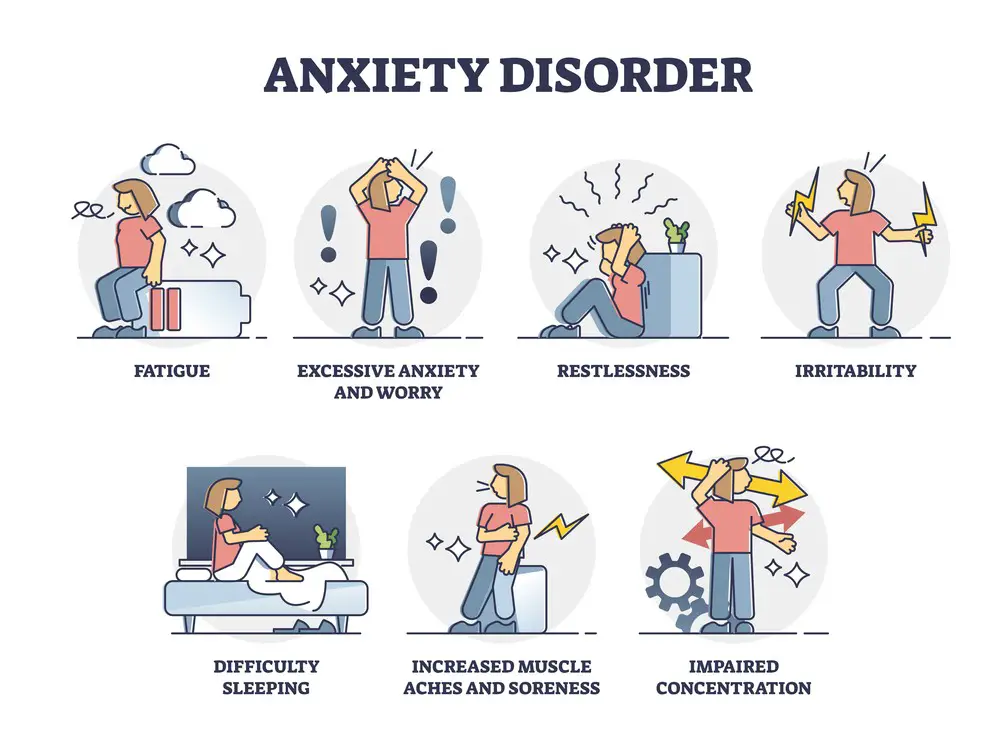 Understanding Completion Anxiety
Understanding Completion Anxiety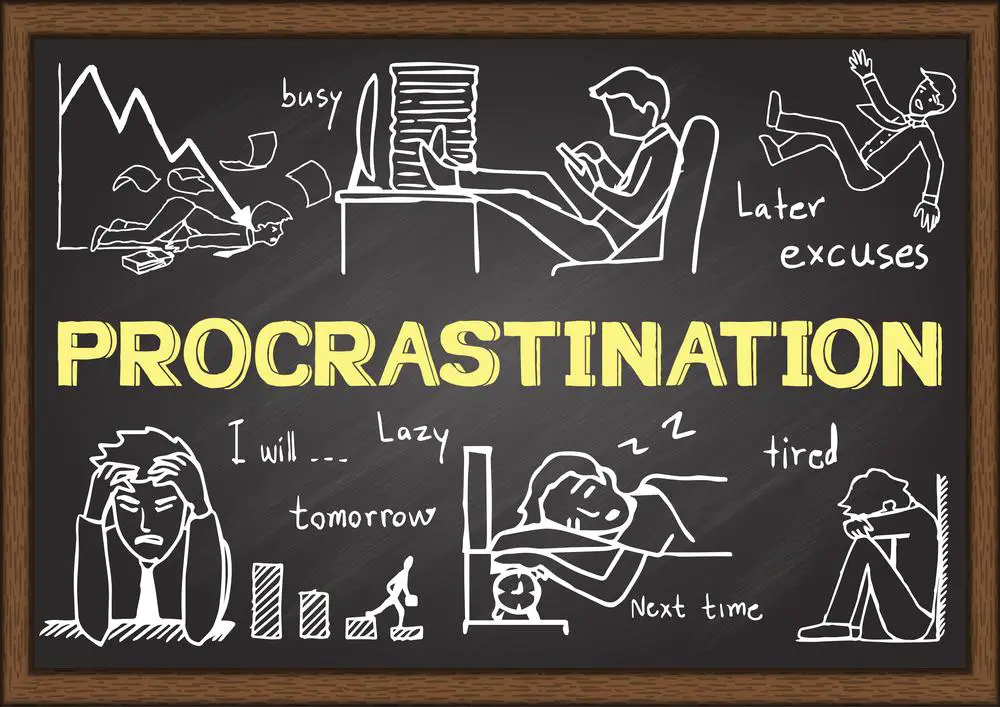
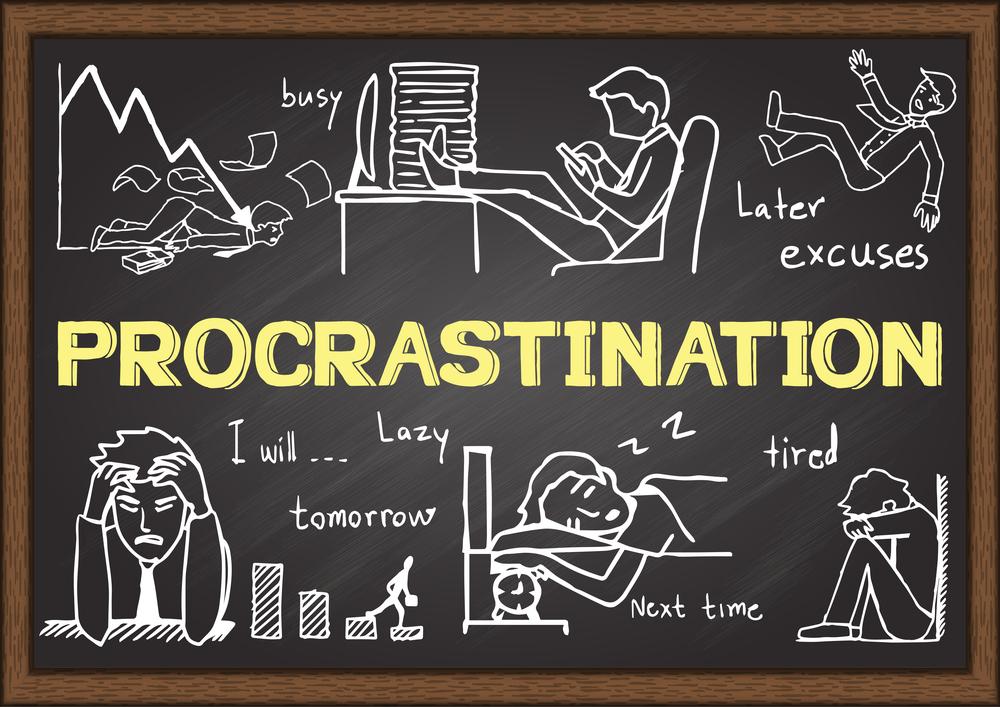 Perfectionism and Procrastination
Perfectionism and Procrastination Impact on Mental Health
Impact on Mental Health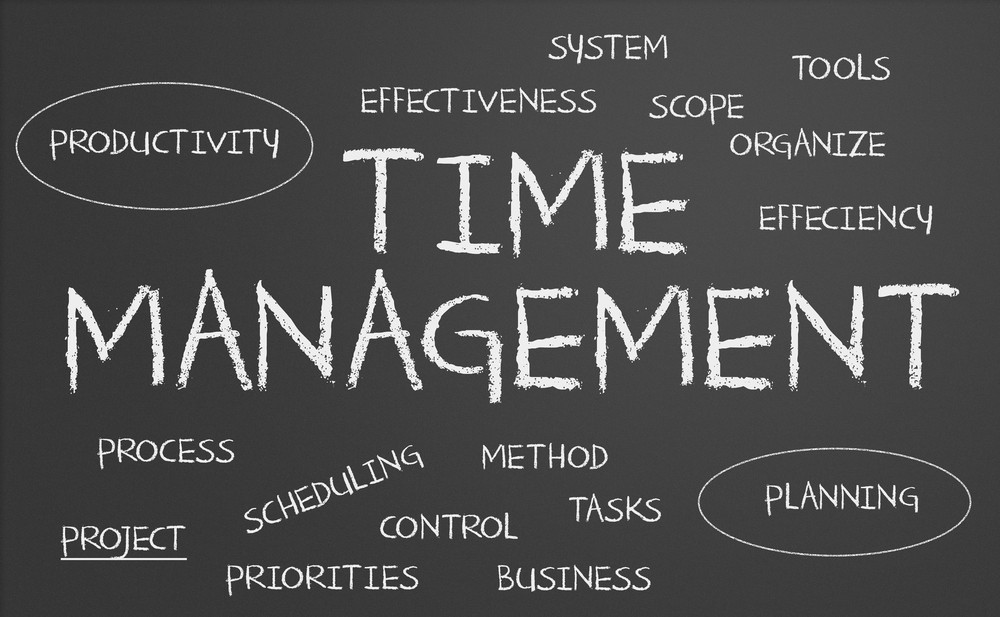 Time Management and Planning
Time Management and Planning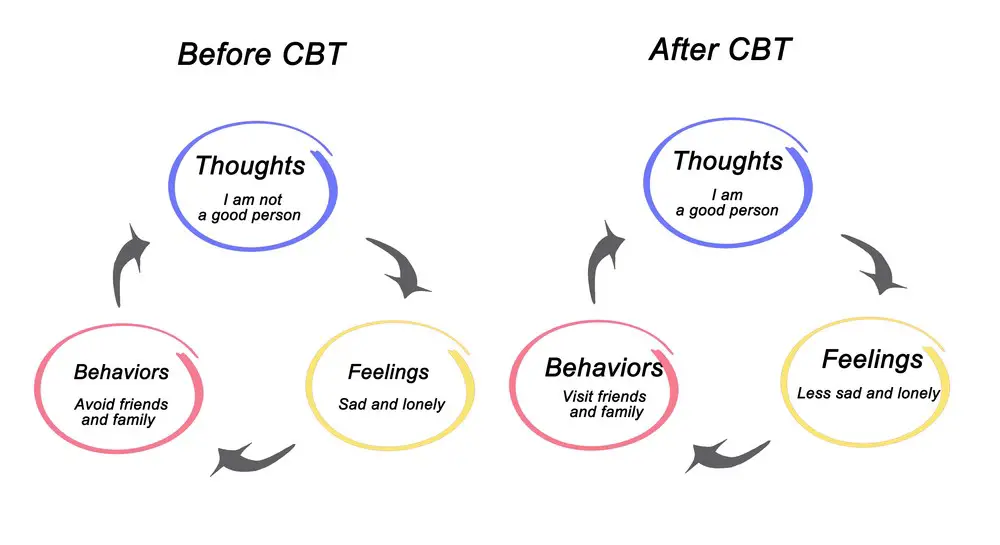 Cognitive Behavioral Techniques
Cognitive Behavioral Techniques
